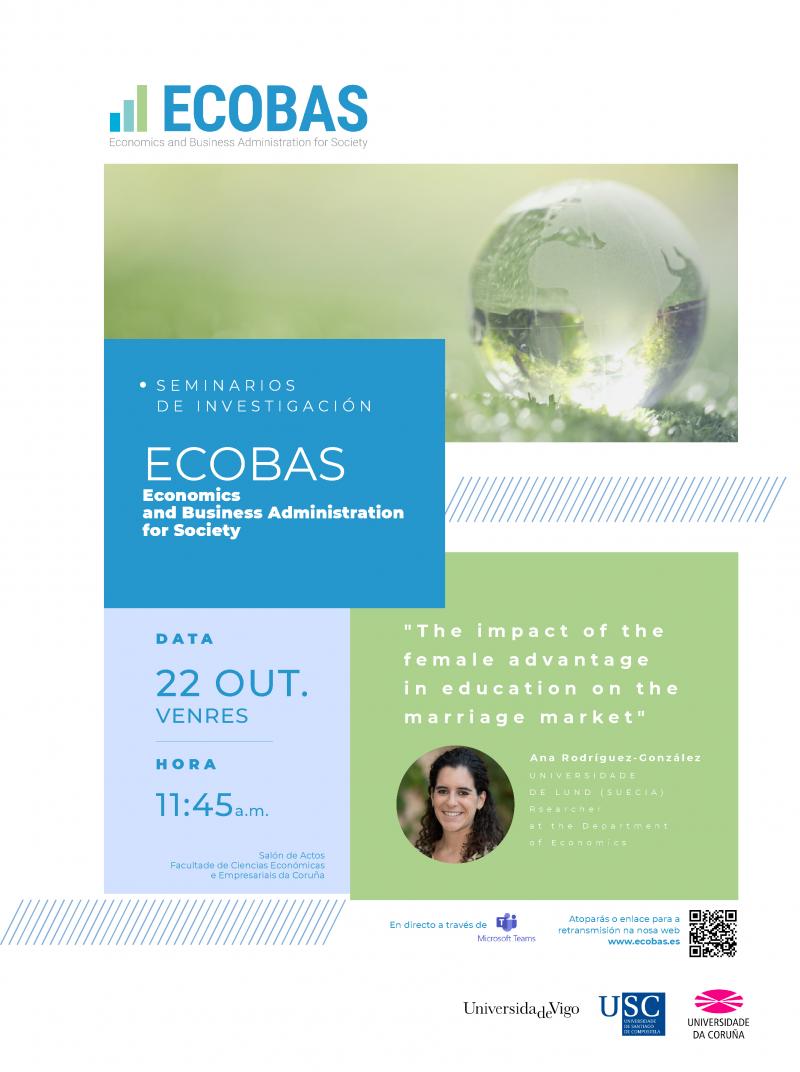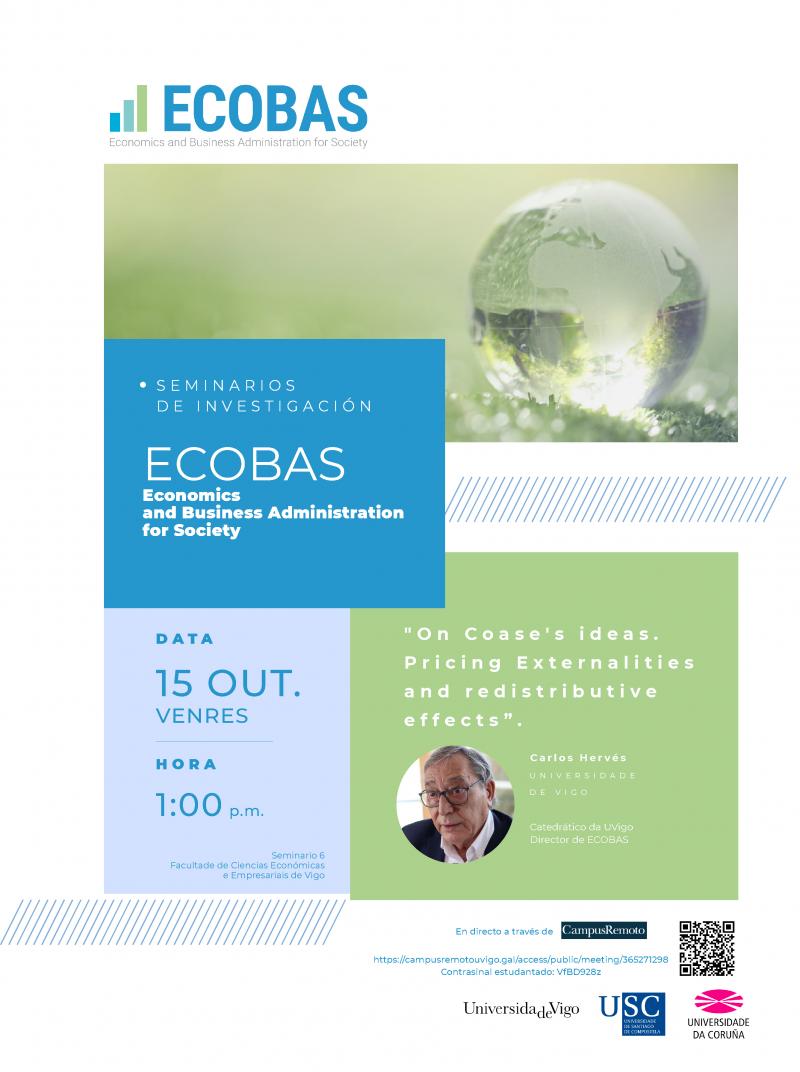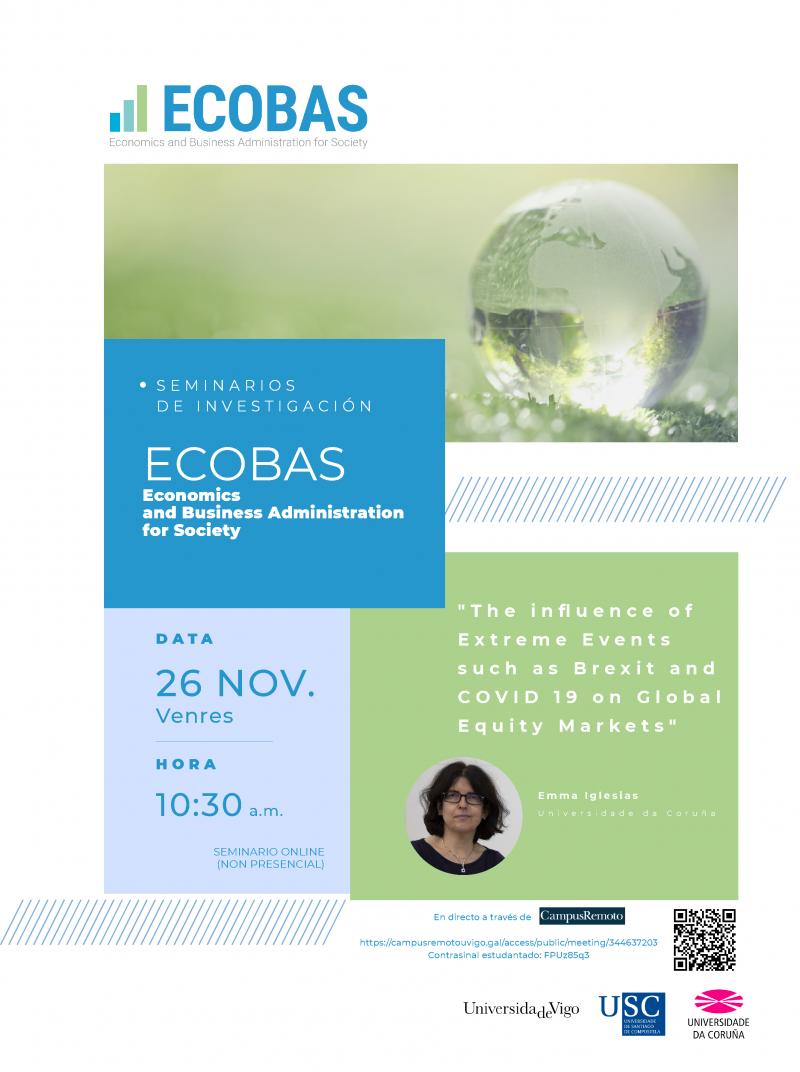ECOBAS Research Seminar: Jorge Higinio Maldonado - University of Los Andes
The communities associated with small-scale fishing in developing countries, typicially exhibit a high level of poverty and vulnerability, as well as a substantial dependency on fishing resources. Fishing plays a key role as their main source of income and food security. However, there is usually not enough information about how these relationships and dynamics work. This study contributes to the comprehension of the lifestyle in these small-scale fishing communities and the identification of how economic parameters may affect household decisions. We have developed a production model of fishing homes where some consumption and production choices are not seperable and fishing is considered a common use resourse. The theoretical model is validated with information from Baru in the Colombian Caribbean. With this calibrated model, simulations hare being designed with both short and long-term effects of different policies regarding fisheries administration and household wellfare in mind. The findings provides us with information to create and design policies that promote the economic development of these communities while using these resources in a sustainable way.
ECOBAS Research Seminar: Jordi Brandts - Barcelona School Of Economics
This study provides a comprehensive analysis of gender differences in performance caused by two different dimensions of competition –rivalry for resources and status ranking. It also examines two mechanisms behind such differences: (1) gendered beliefs about performance differences in competitiveness; and (2) prescriptive stereotypes about women having to show warmth towards others. The results indicate that in the absence of any competitive dimension men and women perform equally well. Any competitive dimension, however, leads to women doing worse than men. These results are explained by men’s beliefs that they are better than women, and by women’s adherence to a prescribed stereotype of not harming others. Gender differences under competition seem to be endogenous to situational contexts, just like they are without competition.
ECOBAS Research Seminar: André Seidel - University of Bergen (Norway)
How much do we know about firm activities around the world? To understand global firm networks and how they operate, we need consistent information about their activities that is not biased by firm reporting choices. In this paper, we collect a novel dataset on factory land consumption and the light these factories produce at night for a large sample of car manufacturing plants to provide such data. We show that we can measure firm activity with this data, using annual firm financial data and high-frequency data related to COVID-19 pandemic production shocks. We use this data to quantify the extent of unreported and misallocated global turnover and show the asset allocation across subsidiaries of multinational firms (MNCs) that is not biased by profit shifting.
Seminar in English










